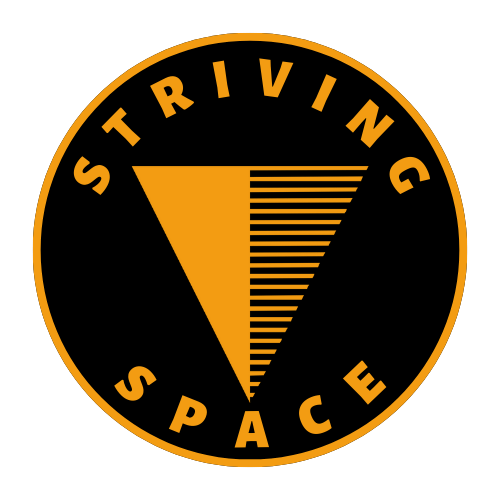Google Bard (now Gemini) is a large language model (LLM) developed by Google AI. It is trained on a massive dataset of text and code, and is able to perform a wide range of tasks including generate keyword-rich content, and enhancing your website’s search engine visibility.
Bard’s ability to generate keyword-rich content starts with a deep understanding of your target audience, industry, and website. It analyzes search trends, user behavior, and your existing content to identify relevant keywords that align with your search goals. This data-driven approach ensures that the content you produce is not only informative and engaging but also tailored to attract the right audience and improve your search engine rankings.

Crafting Keyword-Rich Sentences
Once relevant keywords are identified, Bard skillfully incorporates them into the content in a natural and grammatically correct manner. It understands the importance of keyword usage for search engine visibility, but it avoids keyword stuffing, a common SEO practice that can negatively impact your rankings. Instead, Bard seamlessly integrates keywords throughout the text, ensuring that search engines can easily identify and understand the relevance of your content.
While keyword optimization is crucial for SEO, it’s equally important to create content that is engaging and enjoyable for readers. Bard doesn’t sacrifice readability or user experience for the sake of keywords. It strikes a delicate balance between keyword placement and natural language, ensuring that your content is both informative, engaging, and search engine friendly.

Tailoring Content to Specific Topics
Bard’s versatility extends to its ability to generate content for a wide range of topics and industries. From writing articles to a blog posts, product descriptions, or social media captions, Bard can tailor the content to the specific topic at hand, ensuring that the keywords used are relevant and effective. This adaptability makes Bard a valuable asset for businesses and individuals across a wide range of sectors.
Sample Prompt to Generate a Keyword-rich Content
Sample Prompt I
Topic: Effective strategies for weight loss and management
Keywords: weight loss, diet, exercise, lifestyle changes, healthy habits
Prompt:
“Craft a detailed guide on effective strategies for weight loss and management. Provide a comprehensive overview of healthy eating habits, recommended exercise routines, and lifestyle changes that contribute to successful weight loss. Emphasize the importance of adopting sustainable practices for long-term weight management. Include relevant keywords such as ‘weight loss,’ ‘diet,’ ‘exercise,’ ‘lifestyle changes,’ and ‘healthy habits.'”
Sample Prompt II
Topic: The essential elements of a successful business plan
Keywords: business plan, strategy, marketing, finance, operations
Prompt:
“Create a comprehensive guide on the essential elements of a successful business plan. Provide a structured framework for outlining a business strategy, marketing plan, financial projections, and operational details. Emphasize the importance of tailoring the business plan to the specific goals and objectives of the enterprise. Include relevant keywords such as ‘business plan,’ ‘strategy,’ ‘marketing,’ ‘finance,’ and ‘operations.’
Adapting to Different Content Formats for Consistent Keyword Optimization

Bard’s adaptability extends to different content formats. It can generate long-form articles, short-form social media posts, and even product descriptions, ensuring that your keyword optimization strategy remains consistent across all your content. This consistency helps to establish a strong and coherent online presence, further enhancing your search engine visibility and attracting a wider audience.
Bard’s ability to generate keyword-rich content continuously evolving as it learns from new data and feedback. As you use Bard to create content, it analyzes the performance of your webpages and identifies areas for improvement. This ongoing process ensures that your content remains relevant, engaging, and optimized for search engines.
How Bard Can Optimize Title Tags and Meta Descriptions for Better SEO
Title tags are the first impressions that your webpages make on users in search results. They serve as concise summaries of the content and play a crucial role in enticing users to click through to your website. Bard understands this and can craft compelling title tags that are both search engine friendly and user-friendly.
Relevance to Content: A Foundation for Accuracy
At the heart of effective title tags lies relevance. Bard meticulously analyzes the content of your webpage, identifying the core message and key points. This understanding ensures that the title tag accurately reflects the webpage’s content, providing users with a clear indication of what to expect upon clicking. Accuracy fosters trust and encourages users to engage with your webpage, boosting its click-through rate and overall SEO performance.
Keyword Integration
While relevance is paramount, keyword optimization plays a crucial role in ensuring your webpage appears in relevant search results. Bard skillfully incorporates relevant keywords into title tags, seamlessly integrating them into the natural language flow. This strategic approach ensures that search engines can easily identify the topics your webpage addresses, enhancing its visibility in targeted searches.
Conciseness and Engagement
Brevity is key, and Bard is able to crafts a concise title tags, typically within 60 characters, to avoid truncation in search results. This ensures that the entire title remains visible, capturing user attention and conveying the webpage’s essence within a limited space. However, brevity does not come at the expense of engagement. Bard employs strong verbs and enticing language to pique user interest, making your title tags stand out from the competition and encourage clicks.
Uniqueness for Each Page: A Reflection of Content Diversity
Each webpage within your website offers unique content, and so too should its title tag. Bard understands this principle, ensuring that each webpage has a distinct title tag that accurately represents its specific content. This approach not only enhances the user experience by providing clear navigation but also strengthens your website’s overall SEO performance, as search engines recognize the relevance and diversity of your content.
Crafting Compelling Meta Descriptions
While title tags provide a concise overview, meta descriptions offer a more detailed glimpse into the webpage’s content. Bard excels at crafting compelling meta descriptions that not only summarize the webpage’s key points but also persuade users to visit.
Bard’s meta descriptions are clear and informative, providing users with a concise understanding of the webpage’s content. This clarity sets realistic expectations, ensuring that users are not misled by clickbait or vague descriptions. By delivering on these expectations, Bard enhances user satisfaction and encourages repeat visits, boosting your website’s overall engagement.
Keyword Integration: A Balance between Optimization and Natural Language
As with title tags, Bard skillfully integrates relevant keywords into meta descriptions, ensuring that your webpage appears in targeted searches. However, it maintains a natural language flow, avoiding keyword stuffing that can negatively impact search engine rankings. This balance between optimization and readability ensures that your meta descriptions are not only search engine friendly but also engaging for users.
Call to Action: Encouraging User Engagement
Effective meta descriptions don’t merely inform; they inspire action. Bard incorporates compelling calls to action (CTAs) into meta descriptions, encouraging users to visit your website, learn more, or take a specific action. These CTAs provide a clear next step, guiding users towards engagement and driving traffic to your site.
Bard’s ability to optimize title tags and meta descriptions is not static; it continuously evolves as it learns from new data and feedback. As you use Bard to craft titles and descriptions, it analyzes the performance of your webpages and identifies areas for improvement. This ongoing process ensures that your title tags and meta descriptions remain relevant,











